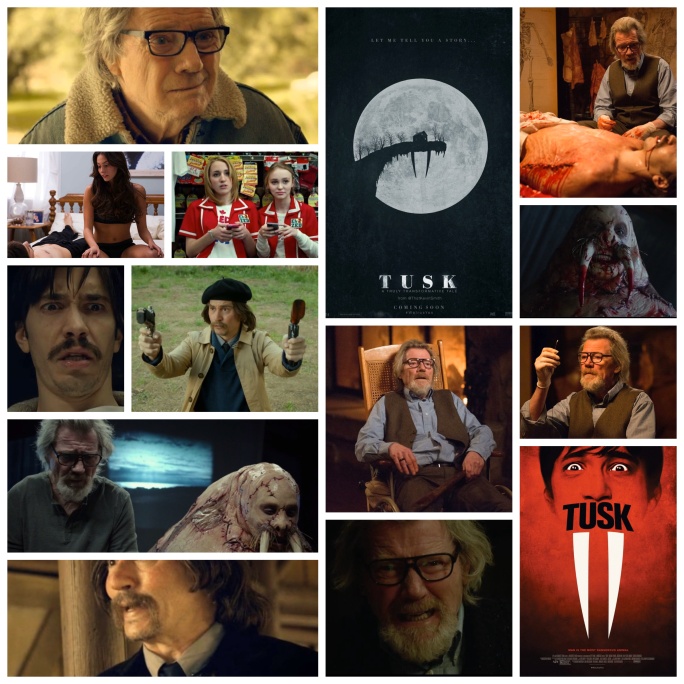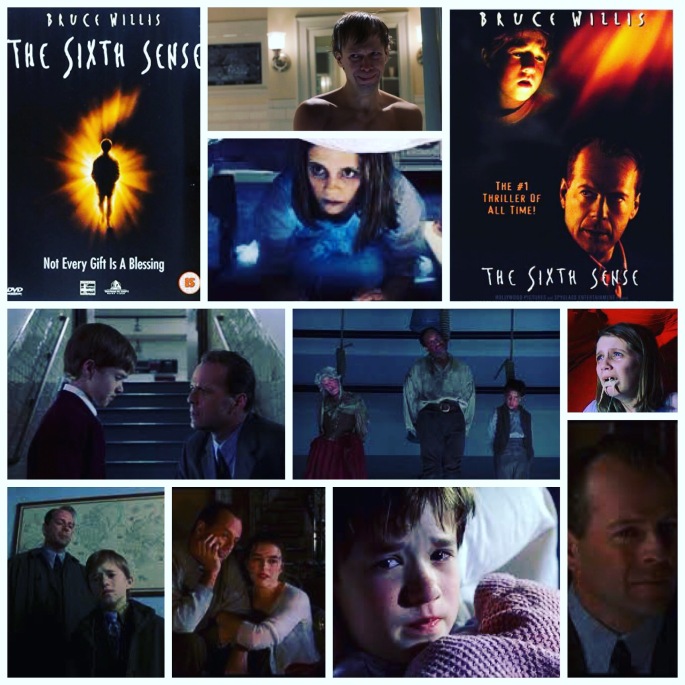
I cant imagine studios giving the green light to anything as fucking deranged as Tusk, so thank god we have Kevin Smith to take the backroad channels through the system in getting it to us. This is one disturbing, bizarre, unclassifiable and defiantly loopy piece of Midnite-Movie horror madness that has to be seen and heard to be believed. It’s also pretty damn entertaining and well done considering, you know, it’s about a serial killer who anatomically transforms his victims into walruses.
Now Smith aside there is one key element that makes the film work, and without it I’m sure this would have been a resounding failure or nowhere as close to the inspired piece of abstract theatre it turned out to be. That element is the late Michael Parks, a brilliant but blacklisted character actor who saw glorious resurrection in both Smith and Quentin Tarantino’s work, bless their nostalgic hearts. He’s a masterful actor that never got his proper due but Smith lets him have a twilight encore here as Howard Howe, a lonely old freak-show who once spent days at sea marooned with only a walrus for company and just can’t let the companionship go. Why he doesn’t go rip off the local zoo and nab the real thing is his business but for whatever reason he sees fit to drug, imprison and mutilate victims to suit his needs. His latest is a brash, asshole podcaster from LA who travels up to Howe’s Canadian neck of the woods to interview him and finds his endeavour getting a bit more hands on than he planned. His fellow podcaster (Haley Joel Osment who first saw dead people and then the McDonald’s drive thru, it seems) and girlfriend (Genesis Rodriguez) attempt rescue by joining forces with French Canadian Detective Guy Lapointe, played by Johnny Depp in a performance so indescribably, hilariously off key that I could employ every adjective under the sun to impart it and still not quite capture the essence.
“The things your generation can get away with” observes Howe when told about the wonders of the internet and podcasting. He’s more right then he knows because in Parks’ heyday this film would either be buried deep in Grindhouse theatre town or not even made at all. Smith doesn’t half ass this or turn it into a lame SyFy original style monster flick, but takes these characters seriously even when they’re ludicrous and the result is something that defies explanation and shuns derision. Parks gives what might be the performance of his career, finding so many different notes in Howe’s soul that one might write a dissertation on this guy. He’s simultaneously ghoulish, endearing, captivating, terrifying and so over the top he circles back and reaches the realm of subtlety again. Depp is amazing, his Québécois accent a thing of misguided beauty (America’s vision of Canada is always consistently adorable) in several droning monologues that could be performance art. He has a flashback scene with Parks in which the guy uses a retarded vernacular to avoid detection and the whole thing is so maniacally staged it feels like a dream or something. For better or worse I’m glad this thing got made, Smith dives headlong into waters he knows are outlandish but cares not for mockery or ridicule (which he unfortunately gets aplenty) and I admire him for that. I loved this crazy flick, it’s as funny as it is scary and the power that everyone involved finds in a story so bizarre as this is something else.
-Nate Hill


